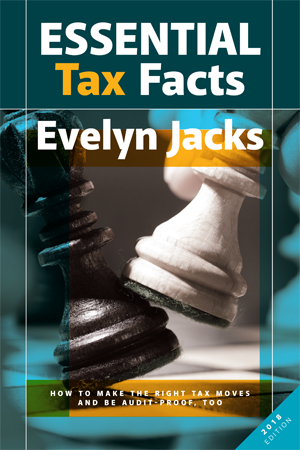
Education: The Secret to Joining the Millionaires’ Club
Global wealth is on the rise. Over the past decade, it’s increased by 27 percent*; and estimates show that by 2022, global median wealth will grow to $341 trillion USD, with the number of millionaires worldwide totaling 44 million,** a 22 percent increase from today. Remaining in the market since the financial crisis ten years ago has been prosperous for many investors – but how can average Canadians join the growing millionaires’ club?
Saving more than you spend is a great start. Research tells us that most millionaires are self-made* and that’s true also of the world’s billionaires – 60 percent of them have made their wealth themselves. That’s the good news.
Here’s the reality check: it takes a deliberate effort to be financially successful. To join the millionaires’ club, you will need to take control of your financial future. To do so, you need three things:
- What’s your number? How much do you have to have to reach your financial freedom day?
- Go after it: Be accountable to achieve increases in your personal and family net worth over time.
- Get there faster: pay much better attention to your tax advantages, because they may not last.
Canadians, like millions in the Western World are in the midst of a new challenge that changes everything: a massive demographic shift. Economic activity – and tax revenues – shrink as the majority of taxpayers retire, and that’s what the immediate future will bring. This will impact younger taxpayers and retirees the most.
Statistics Canada forecasts that the number of 65-year-olds will grow to 20.1 percent of the population by 2024, while the number of young children will remain relatively stable at 16.3 percent. When fewer, younger taxpayers must pay most of the taxes while looking after both the elderly and minors, it will be much more difficult to accumulate assets for their future, and get good returns on their investments in this environment of de-population.
Add to this the fact that so many rich countries will experience recession due to aging at the same time, with dramatic economic change that affects consumer demand, corporate profits, asset values and balance sheets.*
A family’s wealth can drop significantly when financial or housing markets fluctuate as a result of population declines. The financial negatives are worse when there is too much debt, personally or in the hands of government. Slowing economic activity results in fewer tax dollars to pay for important social benefits.
If you live in Canada, you already have a healthy head start to building great wealth. We are fortunate that only 3.5 percent of Canadian family units have little or no wealth. It is also clear who these people are and that their circumstances are not necessarily permanent.
According to Statistics Canada:
- The Young: 15- to 34-year-olds. Money management and savings skills are critical to this cohort, who set spending and saving habits in these formative years. The young have a singular advantage over everyone else: time. When you have both time and money, your odds of becoming wealthier multiply significantly, especially with the right principles in place.
- The Uneducated. These are people who haven’t achieved a high-school diploma. Education is critical to financial success later in life; it is a key factor in the ability to earn sufficient income to buy a home and invest in the financial markets.
- Singles. Unattached individuals and lone-parent families have the most difficulty accumulating wealth. It’s important to think carefully about the financial circumstances in which a family is raised and for society to help with opportunities for education, child care and meaningful work.
Simply put, education is important. Educated people make more money and accumulate more wealth.
Evelyn Jacks is Canada’s most trusted educator in the tax and financial services. Founder and President of Knowledge Bureau and developer of the Real Wealth Management discipline, she is also the author of 53 books.
*Global Wealth Report by the Credit Suisse Research Institute (CSRI)
** WealthX Report, June 13, 2014.
Additional educational resources:
At this traditional “back-to-school” season, learning more about Real Wealth Management, and how advisors and clients can prepare for economic and demographic change, can be a very sound investment.
COPYRIGHT OWNED BY KNOWLEDGE BUREAU INC., 2018.
UNAUTHORIZED REPRODUCTION, IN WHOLE OR IN PART, IS PROHIBITED.





